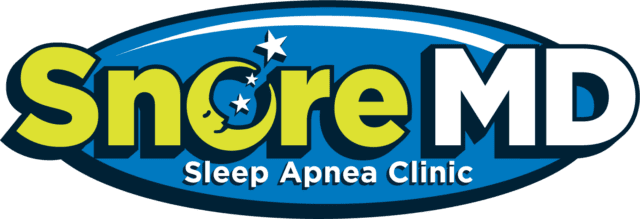
Sleep apnea is a sleep-breathing disorder that can occur with any demographic at any age, but as we age, developing this condition increases dramatically. Some reports state that patients aged 60 and older have a significantly higher risk of developing this condition. Many factors contribute to the increased risk of having Obstructive Sleep Apnea as we age. These factors can include things as simple as age-related weight gain and the loosening of the muscles and tissues throughout our airways that can contribute to the obstruction that is causing patients to experience oxygen desaturations throughout the night. When left undiagnosed and untreated, this condition can increase patients’ risk of heart attacks, strokes, high blood pressure, and many other significant life-impacting comorbidities.
Persons who deal with the care of older demographics should pay attention to the signs and symptoms that older clients may be experiencing to ensure that this condition is diagnosed as soon as possible and treated accordingly. One way for anyone to assess whether or not someone may be at a higher risk of suffering from this condition is to evaluate them using STOP-BANG. When you break down this tool, it presents as follows: Snoring, Tiredness, Observed apneas, high Blood pressure, Body mass index (ratio of weight to height), Age (60+), Neck circumference, and Gender (men have a higher risk). For example, when snoring occurs, this can indicate an increased risk of suffering from Obstructive Sleep Apnea. Decreased daytime energy levels or fatigue can also indicate a higher risk, especially with any of the other clinical signs and symptoms that the STOP-BANG cover. When reports of having three or more of these various criteria, their risk of OSA increases.
The elderly can also be affected by age-related changes to their sleep structure. These changes can include advanced sleep phase disorder, which changes the normal circadian sleep cycle causing a person to fall asleep earlier in the day and awaken earlier in the morning. They may also suffer from decreased slow-wave sleep, which can impact their cerebral restoration and recovery as well as the maintenance and consolidation of their sleep.
Assessment of sleep-related issues associated with the elderly is vital in determining whether they obtain the sleep quality, duration, and adequacy they require. Clinical symptoms that can impact the sleep of older-aged patients and may also indicate other concerns can include loss of appetite, signs of loneliness, and overall disengagement from everyday routines. Environmental, social, and lifestyle changes can also contribute to their sleep structure.
As we age, we tend to develop other comorbidities that may also require treatment in the form of medication, which can play a role in one suffering from increased insomnia in our senior population. Evaluation of current medications and non-hypnotic therapies should be conducted and implemented for best practice outcomes. When elderly patients report sleep-related issues such as insomnia, they should be evaluated for any underlying medical conditions like depression and anxiety that may contribute to their overall sleep quality.
The team at Snore MD prides itself on working with our patients to develop and implement the best treatment and action plan. Therefore, if you know anyone who presents with any clinical signs or symptoms discussed in this article, please encourage them to reach out to their healthcare provider. The physician can then determine if they would benefit from further evaluation as it may be the thing that improves not only their sleep quality but also their quality of life.




